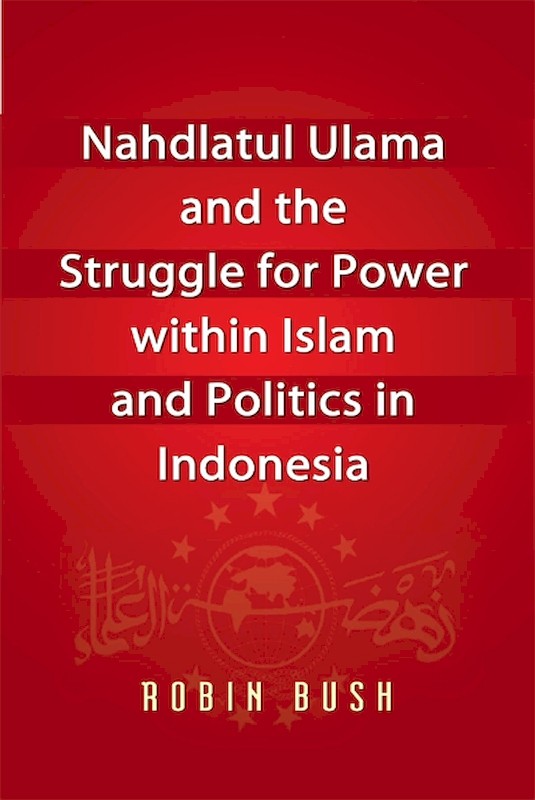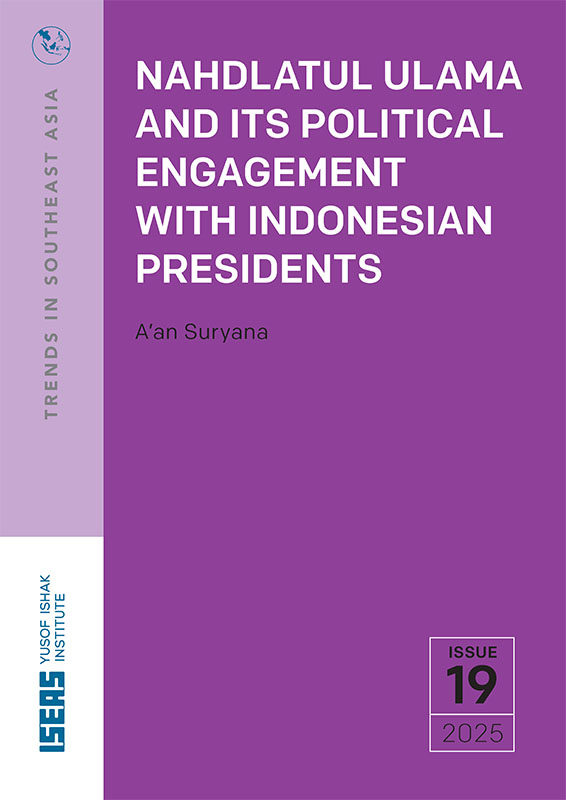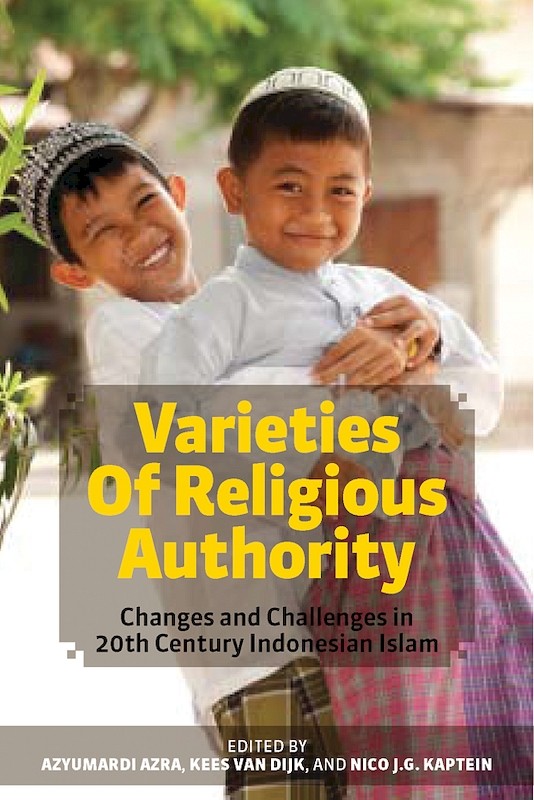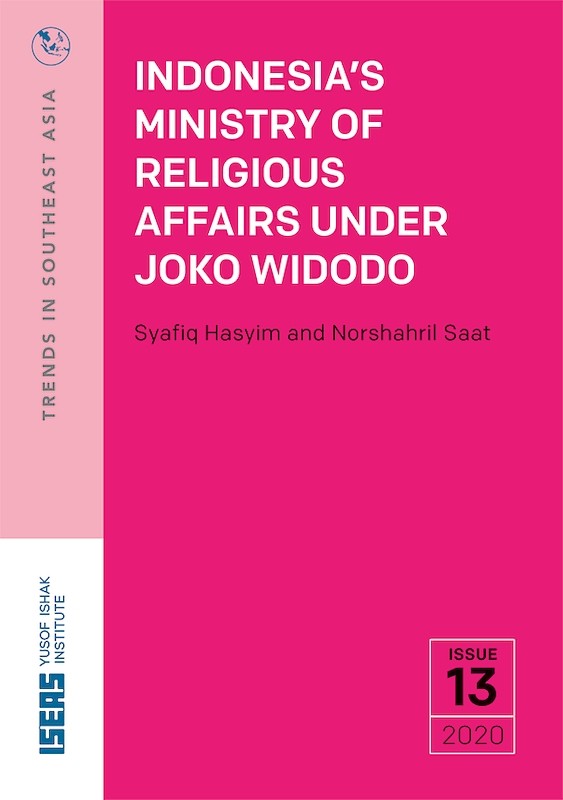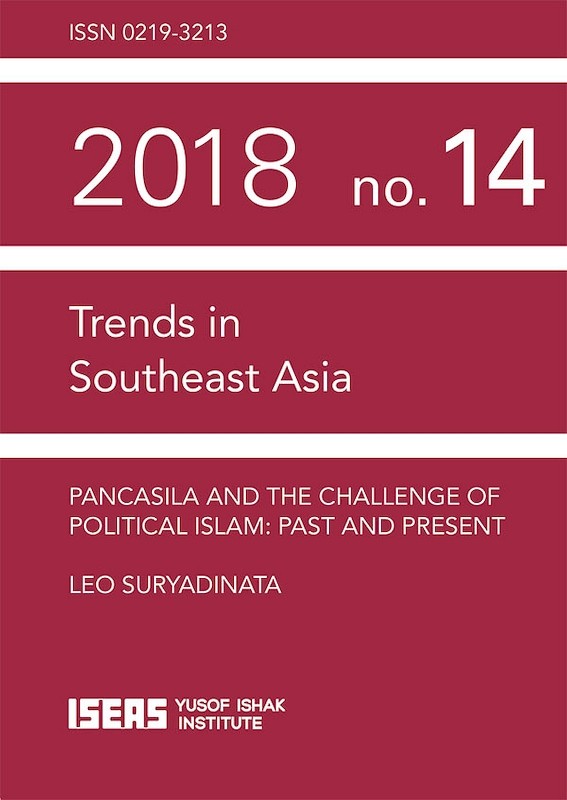The State, Ulama and Islam in Malaysia and Indonesia
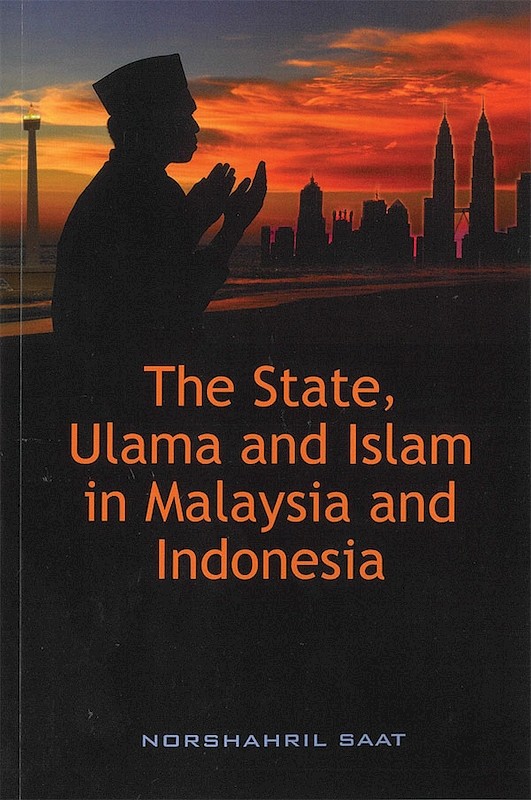
Norshahril Saat, author
Date of publication:
2018
Publisher:
Amsterdam University Press / ISEAS – Yusof Ishak Institute
Number of pages:
254
Code:
BM566
Soft Cover
ISBN: 9789814818834
Reviews
Ahmad Fauzi Abdul Hamid, Pacific Affairs, 2020.
"The State, Ulama and Islam in Malaysia and Indonesia by Norshahril Saat, an upcoming scholar based at the ISEAS–Yusof Ishak Institute in Singapore, is a welcome addition to the fold of scholarly works comparing the two largest Muslim-majority countries in Southeast Asia. .... Norshahril's work, ... stands out as an academic contribution which, while openly utilizing theoretical approaches derived from studies conducted outside Southeast Asian and Muslim-dominant contests, emerges with a conclusion that uncharacteristically favours the indigenously driven ulama or Islamic religious scholars rather than a Western-imported domineering state in terms of the balance of power.
To support his thesis, Norshahril employs empirical data gained from the extensive fieldwork he conducted in both countries, during which he interviewed a significant number of ulama and carried out participant observation of their activities.
Norshahril's work merits commendation as a political science thesis offering novel insights into the inter-linkages between politics and religion, especially Islam."
Moch Nur Ichwan, Journal of the Humanities and Social Sciences of Southeast Asia, Vol. 175, Issue 4, 2019.
"While in the 1990s most authors of Southeast Asian Islam were outsiders or Western and non-Muslim Asian scholars, many native Muslim scholars of Southeast Asia have since the 2000s engaged in writing about their own history, culture, politics, and society. Norshahril Saat's two books here under review, The State, Ulama and Islam in Malaysia and Indonesia (SUI) and Islam in Southeast Asia: Negotiating Modernity (ISA) represent this trend.
SUI is Saat's monograph stems from his PhD at Australian National University (ANU). ISA is a collective volume he edited as part of the ISEAS–Yusof Ishak Institute's workshop on "Islamic Development in Southeast Asia" held in 2015, which was updated to include some further developments up to 2018. SUI focuses on the official Islamic scholars (ulama) in Malaysia and Indonesia, while ISA focuses on the issue of Middle Eastern influence and regional struggles with modernity in Malaysia, Indonesia, and Singapore.
...these two books are valuable contributions to the field, representing how Southeast Asian Muslim scholars and activists write about their own religion in their own respective countries. Such studies are important amid the broad availability, if not dominance, of similar books and collective volumes written by non-Southeast Asian scholars. These two books have undeniably contributed to the study of contemporary developments of Islam and their dynamics in Southeast Asia; one of the most significant yet still somewhat neglected peripheries of the Islamic world."
Budi Irawanto, Tempo, 6 Jan 2019.
Zawawi Ibrahim, Situations 11. 2 (2018): 129-34.
"Indonesia and Malaysia are the two major Southeast Asian modern nation-states with a dominant Islamic population, where Islam is the official religion. In the context of the global Islamic resurgence and the rise of so-called "political Islam," scholars and social analysts have always been intrigued by the contrasting ways in which Islam has been mediated into the governance of both nation-states. According to the author, Norshahril Saat, during the years 1996-1998, the government of Suharto has introduced widespread Islamization policies to contain the Islamic resurgence in Indonesia, whilst for Malaysia, under the leadership of Prime Minister Mahathir, it was during the period from 1981 to 2003. .... The author's core thesis is that conservative Islam has "captured" the Islamic bureaucracy in Malaysia, which stands in contrast to the Indonesian case, where the policy under President Suharto has been one of "co-option," that is, of curbing traditionalist influence through the appointment of modernists to lead religious institutions.
In the book, the author provides detailed first-hand empirical data to argue that Suharto's strategy included the creation of the PPP (United Development Party), the MUI (Ulama Council Indonesia), and later the ICMI (Indonesia Association of Muslim Intellectuals).
In contrast to the Indonesian case, the author argues that in Malaysia, Mahathir empowered ulama institutions to curb challenges from movements calling for dakwah (spreading the message of Islam) and a resurgent PAS (Malaysian Islamic Party), which after the 1980s, became more Islamist.
To me, what is most revealing about the author's comparative analysis is not so much his theoretical applications of concepts such as "co-optation" or "capture" to the empirical material at hand. Rather, it is the irony in which a nation under such a strong ruler under Mahathir had invested so many resources towards its religious infrastructure but yet failed to elevate Islam at the level of its ideology and intellect. Even the author himself lamented that whilst Mahathir's writings and speeches show that he is a modernist and progressive Muslim, he did not develop an ulama class that could master Islamic traditions, social sciences, and modern philosophy akin to those in Indonesia. .... On reflection, notwithstanding Mahathir's modernization project, the analysis of the book does conclude that Malaysia is far behind Indonesia in terms of its development of Islamic intellectualism.
Norshahril Saat has delivered a piece of scholarly work that is both empirically and analytically outstanding and authoritative in its points of comparison."
"Norshahril's empirically rich and theoretically informed study of official ulama in Malaysia and Indonesia illustrates that the power relations between official ulama and their state patrons is not as clear-cut and lopsided as it is conventionally believed. The book argues through the theoretical lens of Joel Migdal's "state-in-society" that official ulama in Malaysia, despite the initial co-optation, have managed to assert their independence and agency, so much so that they have successfully captured some parts of the state. This stands in contrast to the official ulama in Indonesia, who have been less successful than their Malaysian counterparts in doing so.
The book puts forth three factors in explaining why the official ulama in Malaysia have been more successful in capturing the state than their counterparts in Indonesia: clear institutional role, coherent ideology, and organizational unity (p.41). .... the book is meticulous and systematic in structuring its argument, enriched by a host of elite interviews....
In all, this book is a welcome addition to the comparative study of political Islam in two Muslim-majority countries in Southeast Asia. Not many books have been written that compare these two countries in an equal, empathetic and substantive manner, and Norshahril's book is one of the very few that strive to fill this knowledge lacuna. In this regards, the author has done splendidly well in explicating the differences between the two countries despite their many shared characteristics."
About the publication
In response to the Islamic resurgence of the 1970s and beyond, the Suharto (1966–1998) and Mahathir (1981–2003) governments undertook massive Islamisation programmes in Indonesia and Malaysia respectively. This included co-opting influential religious scholars into state-sponsored institutions. In 1975, Suharto formed the Majelis Ulama Indonesia (MUI); while in the 1980s, Mahathir upgraded the Malaysian National Fatwa Council (JKFMKI), JAKIM (Department of Islamic Development Malaysia) and IKIM (Malaysian Institute for Islamic Understanding). The ‘official’ ulamas — the religious scholars who participated in these institutions — were expected to support the states’ ideologies in exchange for reward and recognition. The State, Ulama and Islam in Malaysia and Indonesia examines the extent to which official ulamas in contemporary Indonesia and Malaysia capitalised on their co-optation to ‘capture’ the states. By capture, a concept popularized in political economy, the author refers to societal actors’ ability to influence laws, policies, and the distribution of resources in their favour. The book examines how policies undertaken by Suharto (1966–1998) and Mahathir (1981–2003) determine capture successes and failures of official ulama in their respective countries.
Co-publication: Amsterdam University Press / ISEAS – Yusof Ishak Institute
ISEAS edition is for distribution in Southeast Asia.

